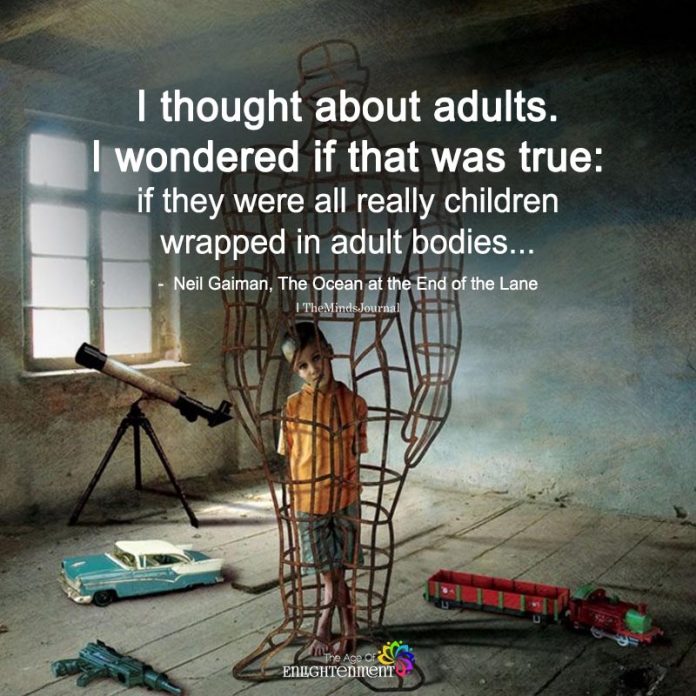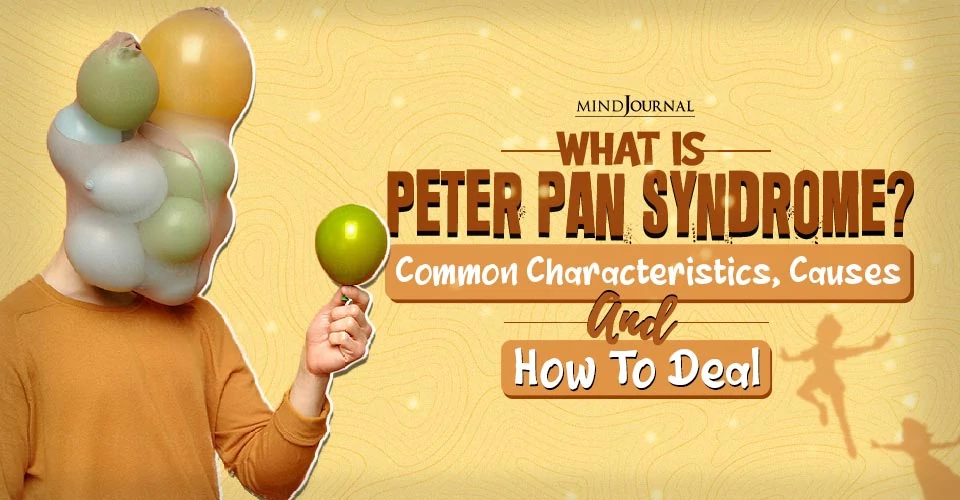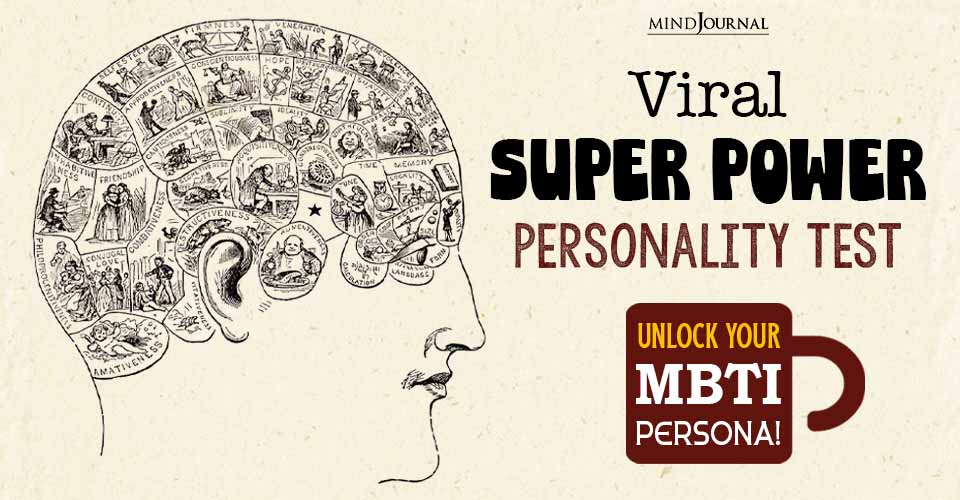In psychology, Peter Pan syndrome refers to a person, mostly a man, who is unable or doesn’t want to grow up mentally and be an adult.
Although this can be observed in both men and women, more men than women are affected by this condition. People with this syndrome have the mind of a child in the body of an adult human being. Currently, this syndrome is not medically accepted or approved.
What Is Peter Pan Syndrome?
Created by novelist J. M. Barrie, Peter Pan refers to a fictional character who never grows up. Similarly, a person with Peter Pan syndrome is someone who doesn’t want to act and behave maturely and take responsibilities appropriate for their age.
The term describes someone, usually, a man, who refuses to work, make commitments in life or act their age. Moreover, they expect their friends and family to support their behavior, attitude, and lifestyle. However, it can be often difficult to determine who is actually suffering from it.
Just because someone acts childish or acts immature doesn’t necessarily mean they have this syndrome, explains an article in BetterHelp.

This behavior was first mentioned in the book, “Peter Pan Syndrome: Men Who Have Never Grown Up” published in 1983 by psychoanalyst Dr. Dan Kiley. Often known as Peter Panners, people who suffer from the syndrome are very immature compared to their age. However, this is not associated with intelligence, rather with emotional maturity.
Related: How Your Childhood Shapes Your Adult Life
Humbelina Robles Ortega, professor of the Department of Personality, Evaluation and Psychological Treatment of the University of Granada believes the syndrome is caused by a lack of life skills and overprotective parents.
She explains “It usually affects dependent people who have been overprotected by their families and haven’t developed the necessary skills to confront life.” Humbelina adds that today’s Peter Panners “see the adult world as very problematic and glorify adolescence, which is why they want to stay in that state of privilege.”
Although it is not a medically recognized condition, experts believe that this syndrome can negatively influence your quality of life and relationships.
The ‘Manolescents’
Best-selling author Kristen Houghton, who calls this condition “manolescent”, explains “Responsibility is a bad word to them and denotes the dreaded territory known as adulthood. They live to have fun.”
She adds “Becoming an adult is a frightening prospect. After all, we become our parents in a way (no matter how much we don’t want to) by becoming responsible. With responsibility comes some sort of personal sacrifice; we do have to have a job, we do have to make car and credit card payments.
We pay rent and we buy food. That’s adulthood and that’s being a responsible human being. The manolescent wants none of this to be placed in his lap. It scares him witless.”
Related: Psychology Behind Attention Seeking Behavior in Adults

The Wendy Syndrome
Although men are most likely to experience this particular syndrome, women are more likely to “mother” their partners and enable such men to avoid all responsibilities. This phenomenon, usually experienced by women, is known as Wendy’s syndrome. ‘The Wendy’ refers to someone who desperately needs to please and satisfy another person, especially her partner or children.
The Wendys often unknowingly encourage their Peter Pans to avoid responsibilities and remain immature. These women may offer unending emotional support, take decisions for the irresponsible men and clean up their messes.
In fact, according to a study, the Peter Pan and Wendy Syndrome is a type of marital dynamic. The study explains “A marital system is described which features an unfaithful and narcissistic husband, Peter Pan, and a long-suffering and depressed wife, Wendy.”
But that’s not all. Different characters from the fictional story may also appear in their real-life relationships. The study adds “Other characters take their parts -Tinker Bell, Tiger Lily, and Little Lost Boys. Peter’s infidelities belie a firm attachment to his Wendy/mother whilst she depends upon him for protection from forbidden impulses.”
Related: The Childhood Wounds We Carry In Adulthood, When We Were Deprived of Love
Common Characteristics Of Peter Pan Syndrome
Have you ever felt that ‘adulting’ is too hard? When you just wanted to let go of all responsibilities and do whatever you feel like without worrying about your responsibilities or the consequences and repercussions. This is what life is like for Peter Panners every single day.

Here are a few common characteristics of this syndrome
1. Failure to launch
Someone suffering from this condition will have difficulty leaving home. They are likely to live with their parents and avoid all opportunities like having higher education or career, to move out and be their own person.
2. Unemployment
Another prominent aspect of the Peter Pan syndrome is chronic underemployment or unemployment. Although they are mentally and physically capable, they will refuse to seek or do jobs to earn money. Moreover, they may also get fired repeatedly due to misbehavior and absenteeism.
3. Avoidance of financial responsibilities
Peter Panners are highly reliant on their friends and family for financial support. They ask, request, or even manipulate others to help them out with the money issues without offering to do something in return.
4. Not doing any work
These individuals will refuse to do any work or chores around the house. Although they might be married and even be parents, they will refuse to do any chores like cleaning the house or taking care of children.
Related: How Inner Child Healing Can Help You Have Healthy Adult Relationships

Causes Of Peter Pan syndrome
Limited research has been conducted to understand this condition. Hence, not much is known about the exact causes of this psychological phenomenon. Here are some factors that may lead to the development of the Peter Pan syndrome:
1. Helicopter Parenting
According to psychologist Humbelina Robles Ortega, the primary reason for this condition is overprotective parenting, which is also known as helicopter parenting. It is an unhealthy and hyper-involved parenting type where the parents show more control over their children than is necessary for appropriate development. This can affect the child’s ability to learn new things and take risks in life to move forward.
By being overprotective, parents make their kids overly dependent on them. As a result, they fail to learn the necessary skills for adulthood. Author and poet Jude Paler writes that this includes “skills like doing laundry, washing the dishes, or handling finances. Other more complex ‘adult’ skills include being able to communicate one’s emotions and taking responsibility.”
2. Anxiety
Being an adult and taking responsibility is difficult. When starting out, most of us feel anxious about making money or getting a job, or being successful in life. Peter Panners often feel crippled by these thoughts and allow their anxiety to get the best of them.
Hence, they look for a possible escape route, like a loving parent or a responsible spouse or even a Wendy to look after them and meet their needs even in their adult lives.
3. Childhood trauma
Trauma experienced as a child can also lead to such behavior in many individuals. Jude Paler explains “Someone who was abused as a child will not have a happy childhood. When he grows up, he may feel like he needs to ‘catch up’ on being a kid.”
So when they become adults, they choose to live their life as a child. “One classic example of this case is the King of Pop, Michael Jackson,” she adds.
4. Loneliness
Humbelina Robles Ortega claims that individuals suffering from Peter Pan syndrome are usually afraid of being lonely. Therefore, they are always looking for care and attention from others, especially their family, spouses, or romantic partners.
5. Commitment phobia
It is believed that these Peter Pans have a strong fear of commitment. According to Good Therapy, “People with Peter Pan syndrome often have a pattern of unstable relationships. They may form relationships with progressively younger partners, who they assume will have fewer plans for the future and require less investment.”
Related: 4 Driving Forces Behind Commitment Phobia
6. Mental health issues
A body of research reveals that men who are affected with this syndrome may suffer from a personality disorder. It is believed that this psychological tendency is usually a part of a complex family system.
7. Economic conditions
Psychologist Patrick Cheatham suggests that financial challenges and economic stagnation may also lead to Peter Pan syndrome in young individuals. For them, being an adult might be something to be afraid of. Cheatham explains “I think it takes more hustle, self-motivation, and social skills to guide a career than it did in the past.”
A 2013 study titled Failure to Launch conducted by Georgetown University discovered that structural and technological alteration in the economy in the U.S. can make it difficult for adolescents to transition into adulthood.

How To Deal With It
Adulthood can be complicated to navigate. With debts, unemployment, relationship issues, and parenting challenges, it can be scary to take up responsibilities and be your own person. If you believe you or someone you know suffers from Peter Pan syndrome, then it’s crucial that you first understand the underlying reasons.
Once you know why you avoid responsibilities you can start taking the necessary steps to overcome this condition by yourself. However, if this appears to be a monumental challenge that you are unable to tackle on your own, then therapy can be especially helpful.
Experienced therapists often know how to guide you and provide you with nonjudgmental help and support. They can help you identify harmful patterns in your life and understand how it affects your chances of having a career and happy relationship.
If a loved one is suffering from this syndrome, then you need to start by establishing clear boundaries. Once you let Peter Pan in your life know that you will not encourage their damaging behavior, they will be motivated to change their mindset and attitude towards life. You can also take them for couples counseling or family therapy or individual therapy to build a balanced and healthier relationship.
The Boy Who Doesn’t Grow Up

Although it may sound like a fairy tale, Peter Pan syndrome is a serious condition that can affect the sufferer’s quality of life. Author Kristen Houghton concludes “The problem is that the charmingly boyish man who refuses to grow up will age just the same as the men who have careers, mortgages, and families. He will grow older too, but with much less in his life.”
If you or your partner or family member shows signs of suffering from this syndrome, then encourage them to seek therapy instead of motivating their damaging and burdensome behavior. With the right help, they will eventually grow up.
Related: 6 Signs You’re Experiencing Spiritual Maturity
Here is an interesting video that you may find helpful:










Leave a Reply
You must be logged in to post a comment.